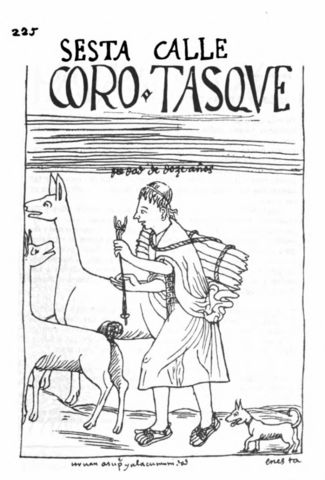Event time:
Wednesday, October 13, 2021 - 4:00pm
Location:
Online via Zoom
Event description:
If you would like to join us for this virtual session via Zoom, please register here.
Within the sixteenth and seventeenth-century Ibero-Atlantic world, herders and their livestock on either side of the Atlantic were active participants in pushing the boundaries of polities, engaging in cross-cultural exchanges, and contributing to the growth of empire. By centering the distinct technological systems of the sapci and estancia, this paper will analyze the role of livestock in the sixteenth and seventeenth-century Andes in their relationship to indigenous communities and the unfolding Spanish colonial project. The sapci, a Quechua concept meaning “that which is common to all,” was, and still remains an Andean communal agropastoral technology. The sapci encompassed the cultivation of llamas and various crops to generate surplus foodstuffs and animal products to pay royal tribute, support disabled and elderly community members, and ration resources in case of failed harvests. Meanwhile, the Spanish livestock system of the estancia, or ranch, was based around the privatized production of meat, tallow, and hides for regional markets through the cultivation of animals such as cattle, sheep, pigs, and horses. While based on varying notions of public and private ownership of animals and access to land, the sapci and the estancia were founded upon human-animal relationships spanning hundreds, if not thousands, of years. As colonial livestock technologies, the maintenance and application of these systems required human-animal relationships to complete their particular goals. Understanding the place of livestock throughout this period helps illuminate ingenuity and interdependence, conflict and contestation, and dispossession and resistance in the early modern Andes.
As a History Ph.D. student at the University of Pennsylvania, KC’s research centers on human-animal relationships throughout the early modern Atlantic World with a focus on colonial Latin America. Prior to Penn, KC graduated from Yale with a Master’s in History in 2020. While at Penn, KC hopes to further explore the intricately bound histories of people and animals across colonial Latin America and further center the status of the non-human in the discipline of history.
The Yale Environmental History Colloquium features works-in-progress by Yale faculty, graduate students and postdoctoral fellows, and occasionally works by Yale Environmental History alumni and working group affiliates. Typically meeting 4-5 times per semester, the Colloquium offers participants an opportunity to workshop dissertation and book chapters, dissertation prospectuses, conference presentations, article drafts, and public humanities projects.
Admission:
Free but register in advance
Open to:
General Public
